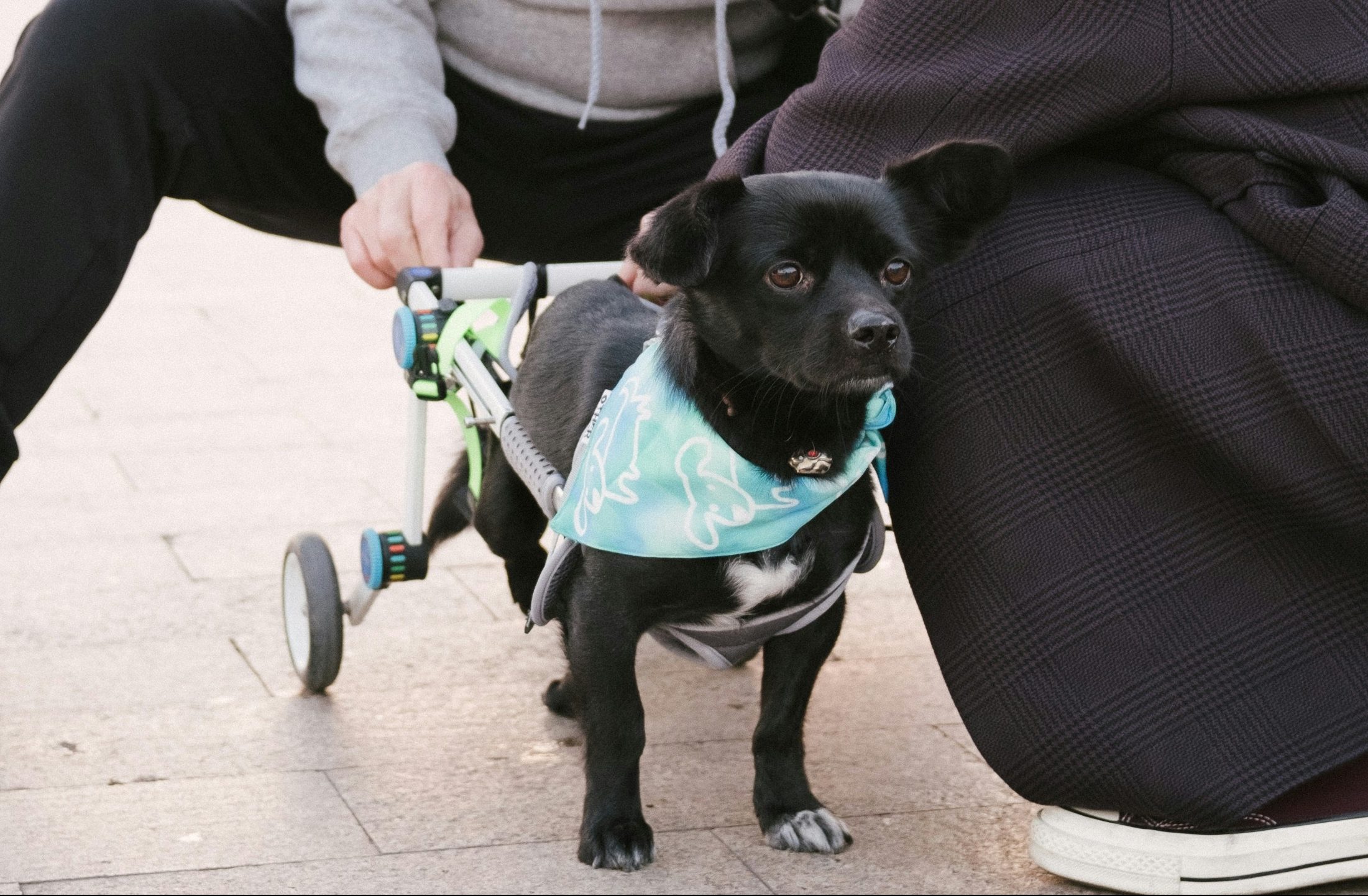Caring for dogs with special needs requires unique approaches to ensure they remain comfortable, healthy, and happy. Moreover, senior and disabled dogs often need adjustments in their daily routines, exercise, and medical care. In this guide, you’ll find practical tips to help support these beloved pets throughout their lives.

1. Create a Comfortable Living Environment
Dogs with special needs often benefit from an environment that accommodates their physical limitations. For instance, simple adjustments can improve their mobility and overall comfort.
- Provide Orthopedic Bedding: Senior dogs or those with joint pain will appreciate a soft, orthopedic bed that eases pressure on their joints.
- Non-Slip Flooring: Place rugs or mats on slippery floors to prevent falls.
- Elevated Bowls: Use elevated food and water bowls for easier access, which is especially helpful for dogs with neck or back pain.
2. Tailor Exercise Routines for Mobility and Stamina
While maintaining some level of physical activity is important, exercise should be modified for special-needs dogs.
- Gentle Walks: Short, frequent walks allow dogs with limited mobility to stay active without straining themselves.
- Use Mobility Aids: Harnesses or carts can help disabled dogs move more freely. Therefore, consult your vet to choose the best support for your dog’s needs.
- Engage in Low-Impact Activities: Swimming or light play can keep senior or disabled dogs physically engaged without overexertion.
3. Regular Vet Visits and Specialized Care
Veterinary care is especially crucial for dogs with disabilities or age-related health issues. Consequently, regular check-ups help monitor their condition and adjust care as needed.
- Routine Health Checkups: Schedule more frequent visits for early detection of any issues, such as arthritis or heart problems.
- Physical Therapy: Therapies such as hydrotherapy or massage can improve circulation and flexibility in dogs with joint issues.
- Medications and Supplements: Discuss options for pain management or joint health, like glucosamine, with your vet.
4. Nutrition and Diet Adjustments
Furthermore, senior and disabled dogs often have unique dietary needs. Proper nutrition supports their overall health, energy levels, and immune system.
- Age-Appropriate Diets: Senior dogs often benefit from a diet rich in omega-3 fatty acids and low in calories to maintain a healthy weight.
- Easy-to-Digest Foods: Dogs with special needs may have sensitive stomachs; therefore, choose foods that are easy to digest.
- Consider Supplements: Talk to your vet about supplements like fish oil, which can aid in joint and cognitive health.
5. Provide Mental Stimulation
Mental engagement is vital for senior and special-needs dogs, as it helps keep their minds sharp and spirits high.
- Interactive Toys: Puzzle toys and treat dispensers encourage mental stimulation and can be easily managed by dogs with limited mobility.
- Gentle Training: Reinforcing simple commands or teaching new tricks at a slow pace can be mentally stimulating.
- Sniff Walks: Allowing your dog to explore and sniff on walks enriches their experience without needing high physical energy.
6. Plan for Emergency Care
In addition, preparing for emergencies is vital, especially for pets with special needs. A little pre-planning ensures they get prompt care when needed.
- Emergency Contact List: Keep a list of emergency contacts, including your vet, pet-friendly urgent care facilities, and a trusted pet sitter.
- First-Aid Kit: Include items like gauze, bandages, and any specific medications your dog may need.
- Transportation Plan: Arrange for a pet-friendly vehicle or transport service in case you need to quickly reach a vet or specialist.
Conclusion
Caring for dogs with special needs, whether they’re senior or disabled, can be incredibly rewarding. By making adjustments to their environment, health care, and daily routines, you can provide a high-quality, joyful life for your beloved pet. Ultimately, remember that with patience and compassion, you’ll create a loving, supportive environment where they can thrive.
